It is true that mustard, in all of its varying forms and flavors, is a condiment that can be used in a broad variety of foods, and it may give depth and complexity to those recipes. That being said, appropriate storage is necessary in order to guarantee its freshness and maintain its flavor. For the purpose of shedding light on the optimal techniques for mustard storage, Chef Brandon Collins, who is a prominent authority on mustard and is one of the few mustard sommeliers in North America, provides details.
The question of whether mustard should be kept in the refrigerator or in the cabinet is one that is talked about rather frequently. Depending on the type of mustard and the components that make it up, the best way to store it is different. A breakdown is as follows:
Refrigeration: Mustards that contain ingredients that are prone to spoilage, such as dairy (like creamy Dijon) or fresh fruits (like cranberry mustard), should be stored in the refrigerator. Because of the cool temperature, the growth of bacteria is slowed down, and the freshness of these ingredients is maintained. Refrigeration is another method that can be utilized to preserve the flavor and texture of mustards that are fragile.

Storage in the Cabinet: Typically, traditional mustard kinds such as classic yellow, spicy brown, or stone-ground whole grain mustard can be stored in the cabinet before being opened. Certain varieties of mustard have natural preservatives such as vinegar and salt, which allow them to be stored for an extended period of time. On the other hand, once they have been opened, it is recommended that they be refrigerated, particularly if they include materials that are perishable.
Shelf Life of Mustard
In order to shed light on the elements that influence the freshness and longevity of mustard, and to provide valuable insight into the shelf life of mustard, both before and after opening, many chefs share unique knowledge.
Mustard that has not been opened: Mustards that are manufactured for commercial purposes often have a longer shelf life when they are not opened, typically surviving for at least two years. The use of preservatives into the production process is principally responsible for the extended shelf life of the product.
These preservatives, which may include components such as vinegar, salt, and occasionally natural or artificial additives, help to suppress the growth of bacteria and retain the quality of the mustard over a lengthy period of time. However, it is vital to keep in mind that the actual shelf life may differ from one brand to another, depending on the components used and the conditions under which the product is stored.
Opened Mustard: Once a mustard jar or container has been opened, the shelf life of the mustard begins to change, making it more difficult to predict. After opening, mustards that are stored in the refrigerator often keep their freshness for around one to two months. Nevertheless, this period is not written in stone and can be affected by a number of events, including the following:
- Ingredients: It is possible that mustards that contain perishable ingredients such as dairy, fresh fruits, or eggs (in the case of certain specialty mustards) may have a shorter shelf life after being opened in comparison to basic variants that are created with vinegar and spices.
- Preservatives: The presence of preservatives in the mustard formulation, as well as the efficacy of such preservatives, can have an effect on the mustard’s shelf life after it has been opened. The rate at which mustards that contain fewer preservatives go bad may be faster.
- Conditions of Storage: The longevity of mustard that has been opened is directly proportional to the extent to which it is stored. In addition to preventing the formation of bacteria, refrigeration helps to maintain the condiment’s freshness for a longer period of time. To further assist in the preservation of the container’s quality, it is important to make sure that it is tightly sealed after each use.
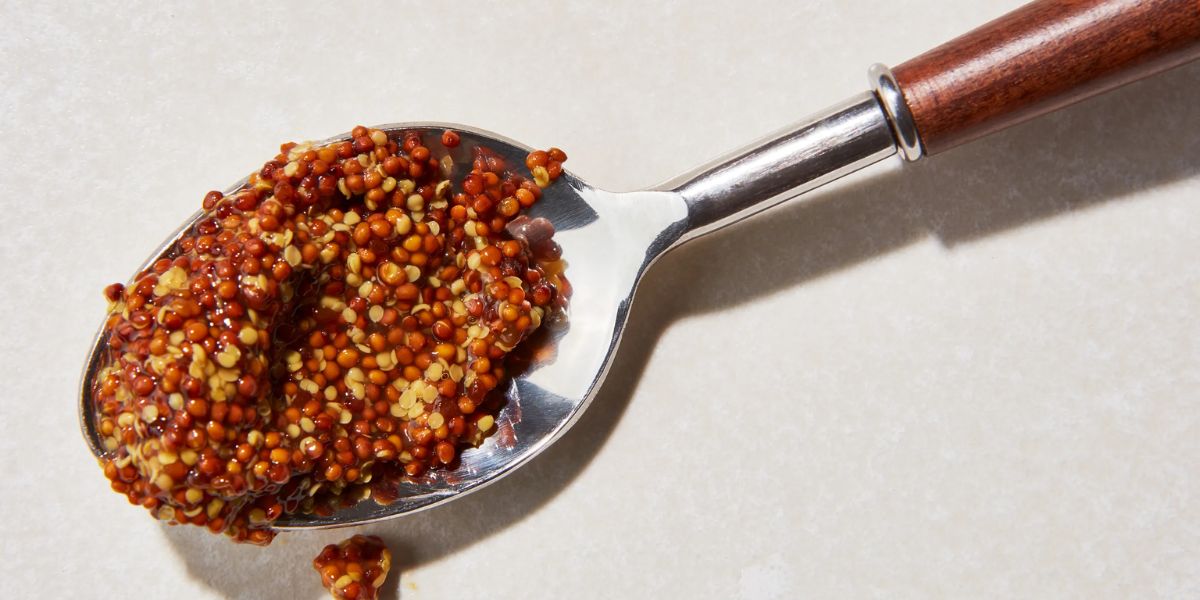
It is essential to comprehend and adhere to the recommended storage techniques in order to maximize the shelf life of mustards, regardless of whether they have been opened or not. The chefs have provided guidance that emphasizes this necessity.
Mustards that have been opened require particular attention to aspects such as the composition of the ingredients and the conditions under which they are stored in order to ensure that they continue to be safe and tasty for consumption. Unopened mustards, on the other hand, benefit from the presence of preservatives and sealed packaging.
Should the Mustard Be Kept at a Cool Temperature?
There are a number of cooks who believe that mustard should be stored in the refrigerator, particularly once it has been opened. On the other hand, it is widely accepted that mustard possesses a natural antimicrobial property, which contributes to its shelf-stable quality to a certain extent.
A further improvement in its shelf stability is achieved with the incorporation of components such as vinegar and salt. These components provide the function of natural preservatives, restricting the growth of microorganisms and so extending the mustard’s shelf life during storage.
Therefore, although it is suggested to refrigerate mustard in order to achieve the highest possible level of freshness and lifespan, it is not necessary dangerous to leave mustard out at room temperature. It is possible for mustard to be consumed without risk even after it has been stored in the pantry because of the natural antibacterial characteristics and preservatives that it possesses.
Nevertheless, chilling can assist in preserving its flavor and texture over a longer length of time, particularly for mustards that contain ingredients that are susceptible to spoilage, such as dairy products or fresh fruits.
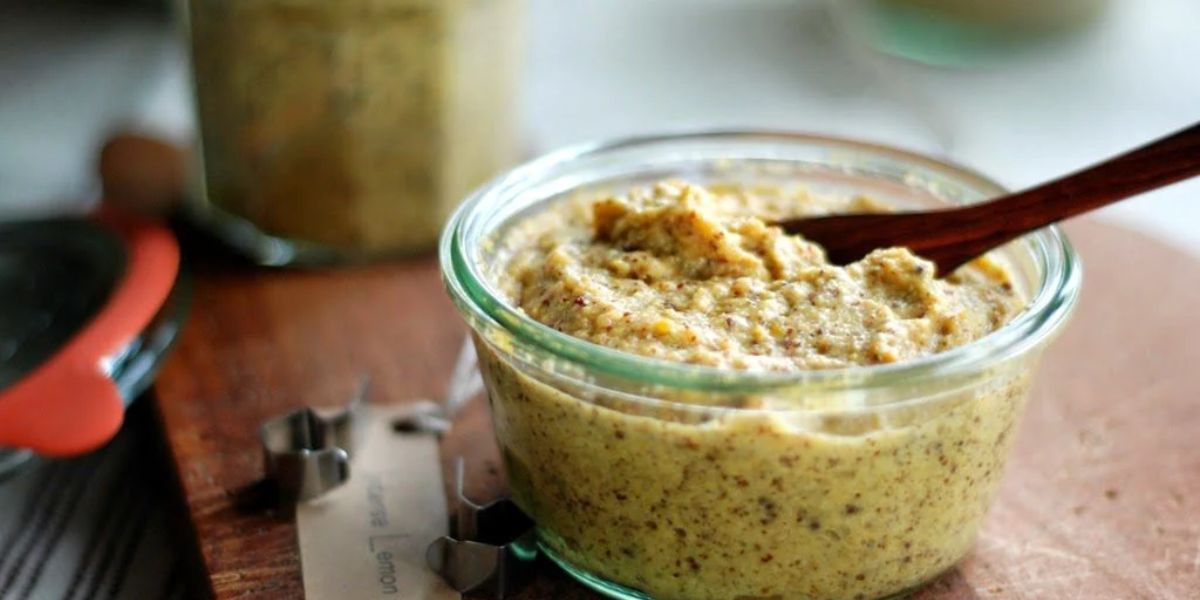
In what ways may the flavors of mustard be preserved?
It is important to keep the following suggestions in mind in order to maintain the flavor of mustard for as long as possible:
- Ensure Proper Sealing: After each use, make sure that the mustard container is well shut to prevent air exposure, which can lead to a loss of flavor and speed up the process of spoiling.
- Keep Away from Heat and Light: It is important to keep mustard away from heat and light. To preserve its flavor character, mustard should be stored in a cold, dark environment. It is possible for the mustard to lose its strength and produce off-flavors if it is exposed to different temperatures and light.
- Pay Attention to Any Changes in Color, Texture, or Odor: It is important to recognize any changes in color, texture, or odor that may be indicative of spoiling. Any mustard that exhibits symptoms of mold development or has an unpleasant odor should be thrown away.
You will be able to enjoy your favorite mustards at their peak for longer lengths of time if you follow these preservation recommendations. This will allow you to enhance your culinary creations with the different flavors that mustards possess.
Does mustard go bad over time?
Chef provides a deeper perspective of the longevity of mustard by drawing a comparison between it and Sriracha sauce, which similar to mustard does not go bad in the traditional sense. Even when its peak has passed, mustard does not become rancid and does not make a threat to one’s health.
Mustard seeds, on the other hand, start to emit their characteristic heat as soon as they come into contact with air, water, and vinegar. This process cannot be reversed; once it has begun, the heat cannot be returned; it can only be slowed down.
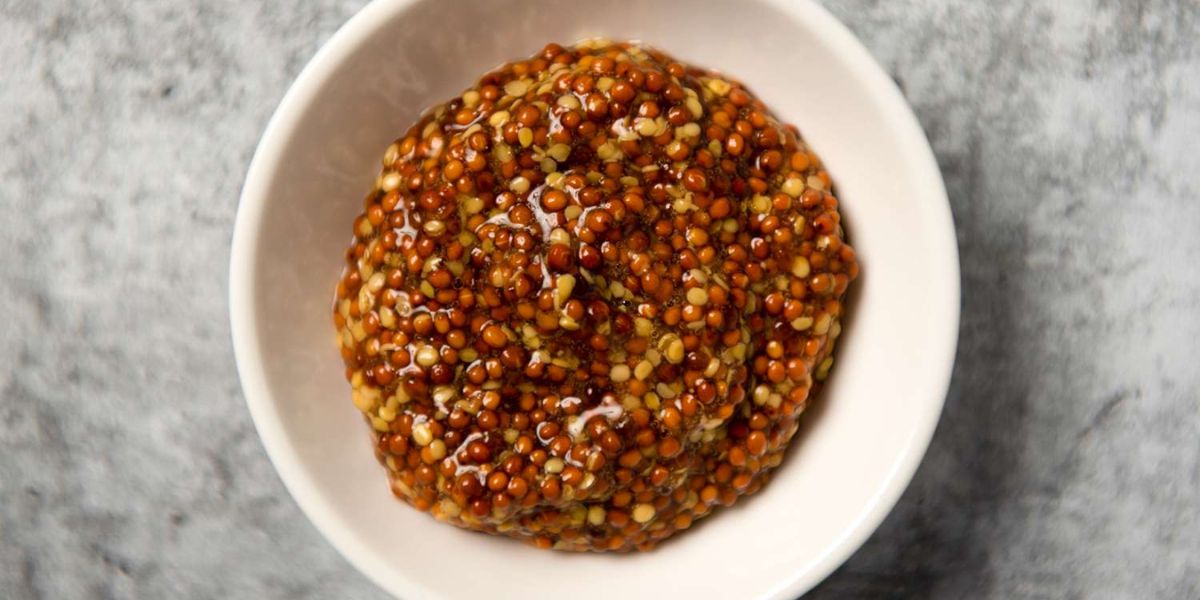
In spite of the fact that mustard does not undergo the typical deterioration process, it does not remain intact forever. It is common practice for manufacturers to label mustard bottles and jars with a “best-by” date rather of an expiration date.
Beyond this date, the mustard’s flavor and power will gradually reduce, even if it will not deteriorate in a way that could be considered dangerous. This date acts as an indicator. Even if the mustard is kept in a container that has not been opened and is sealed, it will begin to lose its distinctive flavor and power as time passes.
With this newfound knowledge, the significance of freshness in mustard consumption is brought into perspective. Even though it won’t make you sick, it’s best to consume mustard when it’s at its freshest and most flavorful. It is possible that mustard that has passed its “best-by” date can still be consumed safely; however, it will not provide the same energizing flavor sensation that the producer had in mind.
Despite the fact that mustard does not go bad in the conventional sense and will not cause you any harm, it is important to pay attention to the “best-by” date on the packaging so that you can enjoy it at its most tasty version.
Should one be concerned about the type of mustard that they use?
When it comes to the type of mustard, it is always advisable to refrigerate it after it has been opened. This is true regardless of whether the mustard is a robust and robustly spicy variety or one that has a softer and more delicate flavor profile. Even while mustards with a stronger flavor may keep their flavor for a longer period of time than mustards with a milder flavor, chilling helps preserve the flavor and freshness of all varieties of mustard.
How much time does mustard remain effective?
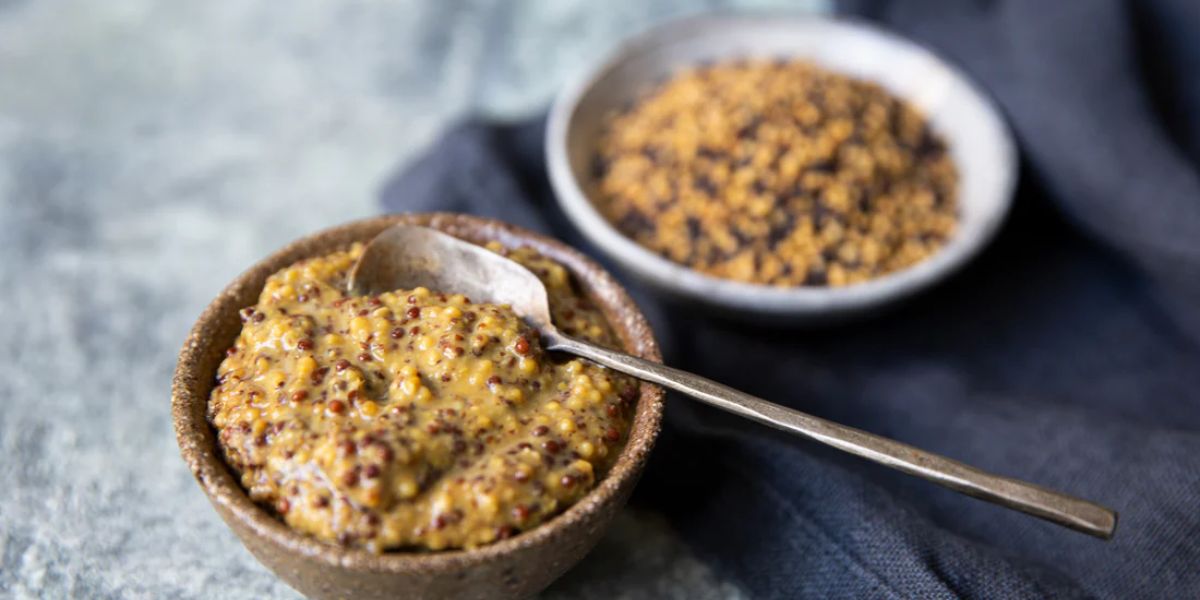
Considering various factors and highlighting the elements that influence the flavor and freshness of mustard over time., one should keep in mind that:
Mustard has a shelf life that is unlimited since it contains natural preservatives and acidic components like vinegar. In theory, mustard can be stored for an indefinite amount of time. On the other hand, even if it might still be safe to consume, the flavor will gradually fade with time. As time passes, the product’s flavor and strength gradually diminish, resulting in a product that is duller and less tasty.
It is recommended that you adhere to the “best-by” date that is indicated on the bottle or jar of mustard in order to appreciate it at its fullest potential at the time of use. In order to get the best possible flavor and quality, this date serves as a guideline. If you consume mustard before this date, you will undoubtedly have a more vibrant flavor experience, which is exactly what the maker intended.
Mustard must be refrigerated once it has been opened in order to maintain its flavor and freshness. Once the mustard has been opened, refrigeration is essential. The process of mustard deterioration is slowed down by refrigeration, which allows the mustard to maintain its complexity, heat, and overall flavor profile for a longer period of time. If you want to keep the quality of mustard after it has been opened, make sure you put it in the refrigerator.
When it comes to consumption, individuals who favor mustard at room temperature have the option of not refrigerating it while it is being consumed. However, in order to preserve the flavor profile of the mustard to the greatest extent possible, it is recommended that mustard be consumed at room temperature within one to two months of its opening. After this period of time has passed, the flavor may begin to become visibly less appealing.
Take precautions to avoid cross-contamination
The issue of cross-contamination and the potential impact it could have on mustard is a significant factor that must be taken into consideration. This highlights the significance of food safety standards in maintaining the mustard’s integrity.
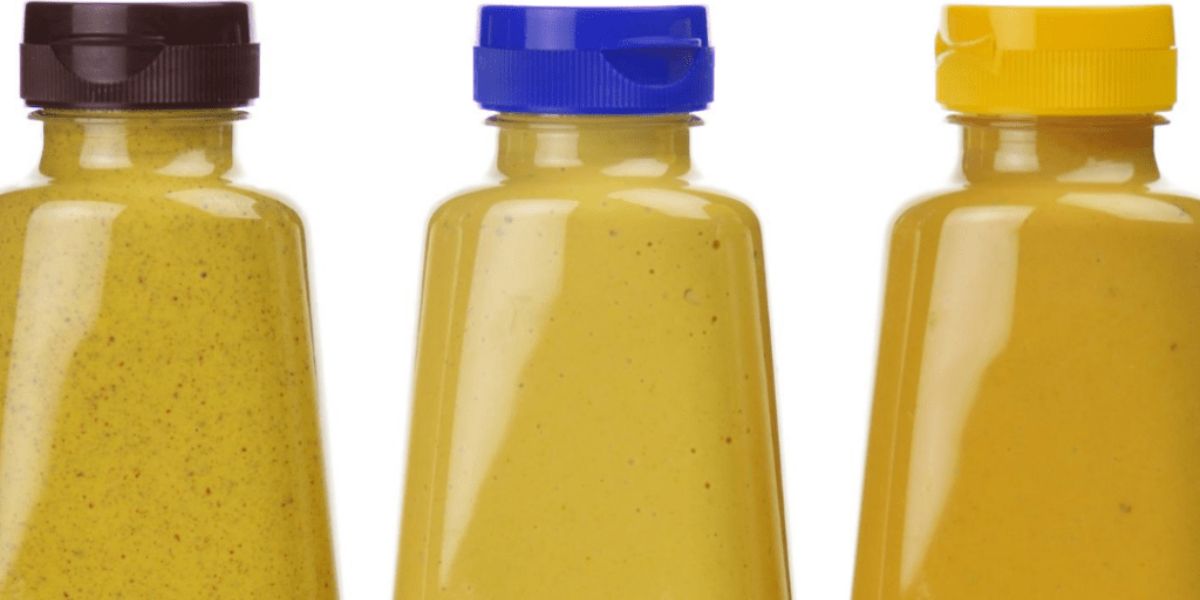
Risk of bacterial growth: Although mustard alone possesses antibacterial qualities that hinder the growth of germs, the addition of foreign components can generate conditions that are conducive to the growth of bacteria. This poses a risk of bacterial growth. In the event that little bits of bread, traces of mayonnaise, or other impurities are left unchecked, they can serve as breeding grounds for bacteria that are embedded in the mustard.
Impact on Safety and Quality: As mustard continues to gather foreign chemicals, it reaches a point where its natural antibacterial qualities may become overpowered, which can have a negative impact on cleanliness and safety. It is possible that this will impair the quality as well as the safety of the condiment. When it comes to preventing cross-contamination, Chef Collins stresses the importance of exercising caution, particularly when it comes to handling mustard in conjunction with other foods.
Preventive Measures: It is vital to take preventative steps in order to reduce the likelihood of cross-contamination through the implementation of preventative measures. Every time you scoop up mustard, it is important to use a clean instrument to facilitate the prevention of the transfer of pollutants. In addition, avoiding activities such as spreading mustard straight onto sandwiches and then reusing the same utensil for future servings has the additional benefit of reducing the likelihood of introducing foreign matter into the condiment.
Final Thoughts
The flavor of mustard is diminished over time, despite the fact that it can be consumed without risk for an infinite amount of time. In order to have a more pleasurable experience with the flavor, it is important to adhere to the best-by date, store opened mustard in the refrigerator, and use it within a fair amount of time.
You can maximize the flavor and freshness of mustard by storing it properly and consuming it at the appropriate time. This is true whether the mustard is stored at room temperature or in the refrigerator.
Furthermore, despite the fact that mustard’s intrinsic qualities provide some protection against the growth of bacteria, it is essential to exercise caution in order to avoid cross-contamination and maintain stringent food safety standards.










